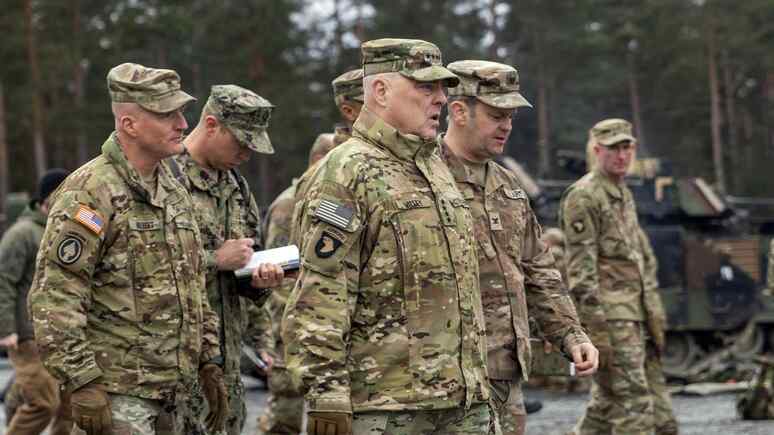In 2023, the Pentagon failed to meet the targets set before it for recruiting new recruits to the army. The fact is that only 23% of young Americans have no barriers to military service, such as being overweight or using drugs. And even fewer of them want to go into the army under contract, writes The Washington Times.
The Pentagon is struggling to recruit soldiers for the U.S. military, but projections show that next year’s U.S. Army will be the smallest in history since before World War II. Military recruitment results in 2023 have been dismal, and officials express only cautious optimism for 2024. Defence Secretary Lloyd Austin reminded that this problem did not come out of the blue and it will not be solved overnight, The Washington Times reports.
The Department of Defence reports that only the smallest of the US military branches – the Marine Corps and the Space Force – met their recruiting goals this year. The Pentagon told the House Armed Services Committee that it has under-recruited more than 40,000 people this year. There’s also a problem with reservists: for example, the Air Force managed to recruit only 5,288 of the 7,765 new reservists it needed, about 30% below plan.
Surveys show that only 23% of young Americans between the ages of 17 and 24 are able to join the military. They are hindered by weight problems, past drug use or having mental and physical health issues. “Even fewer expressed genuine enthusiasm for joining the service,” the article’s author writes.
In 2024, the number of military personnel is scheduled to drop to just over 1.2 million. But even these modest goals are not certain to be achieved, the publication notes. And it’s not about money. For 2024, about $886.3 billion is allocated for national defence – that’s more than in 2023.
To meet the targets, some Army units have lowered requirements for tattoos and facial hair. The Navy, for its part, has decided to go in through advertising among the older generation, which can influence the younger generation.
The problem including low unemployment, which gives the youth a choice of other jobs. Deputy Defence Minister for Personnel and Readiness Ashish Vazirani said, “There has been a big impact of the pandemic on our recruitment model, which relies heavily on personal access of recruiters to educational institutions.” He noted in his report that more than 75 per cent of American youth are unsuited for military service, including more than 10 per cent who are overweight.
Although the army is still respected in the US, its image has declined, in part because of the withdrawal from Afghanistan, the polarisation of society, and fears of polarisation in the armed forces. That said, more than 50 percent of Americans say they would discourage someone close to them from joining the military.
Servicemen and veterans of the armed forces, in their turn, name a lot of reasons for such reluctance of young people to join the army: from poor living conditions in barracks to bad attitude of the leadership at the unit level. They point out that even unskilled workers in the private sector are paid more and given more benefits than in the army. And in the age of the Internet, there is no way to hide it.
The army is taking unusual initiatives to attract recruits. For example, it organises training courses for future soldiers to help potential recruits achieve the physical fitness and academic knowledge needed to start their service. The courses have already graduated 14,000 people, 95 per cent of whom become soldiers.
However, it’s not just the military that young Americans don’t want to join, it’s also college: enrollment dropped 15 percent between 2010 and 2021, with most of the drop occurring before the pandemic. Other national programmes such as the Peace Corps have not recovered to pre-pandemic levels either, The Washington Times reports.

